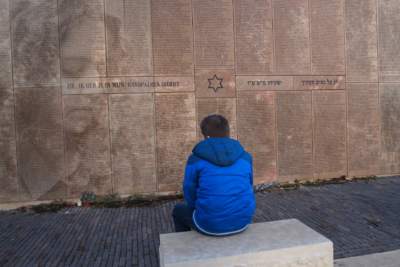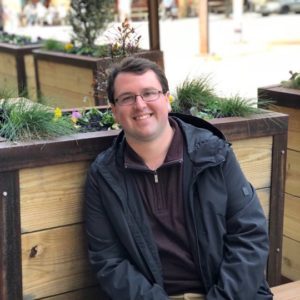According to a survey recently reported in the New York Times, 41 percent of millennials wrongly believe two million or fewer Jews died in the Holocaust and that 66 percent of millennials could not say what Auschwitz was.
But our community is missing the scariest data point from this survey. Another statistic from the study, one I’ve seen quoted less often than the two mentioned above, is far more concerning.
The survey also found that 52 percent of Americans wrongly believe that “Hitler came to power through force.”
Of all the lessons we have tried to carry with us in the last 70 years, among the most important is the way in which citizens of a country can be alienated, dehumanized, and stripped of their rights in a Western, democratic society.
The focus on the first two data points, about Auschwitz and the number of Jews killed, signals a deeply troubling particularist inclination in how we remember the Holocaust.
In my four years in college, multiple professors have stressed that classes are not about the memorization of specific dates or names but rather the ability to understand and articulate broader concepts.
This approach is how I reflect on the goals of Holocaust education and this specific survey. I am less concerned with whether or not my fellow millennials remember names or numbers, but rather if they understand the broader societal trends that made despotism, tyranny, and ultimately genocide possible.
Does millennials’ inability to remember specific facts and figures about the Holocaust indicate their inability to understand and identify these broader concepts? Possibly.
But it’s worth noting that the survey also found that 96 percent of respondents believe that the Holocaust happened and 80 percent believe it is important to keep teaching about the Holocaust so it does not happen again.
The issue is, if they don’t know Hitler came to power in a democratic society, they don’t know what it means to prevent it from happening again.
Jewish reactions to this survey data showed great desire for expanded Holocaust education, measured in how much others remember about the specific details of our suffering. While that knowledge has value, in my mind, the ‘never again’ and ‘never forget’ refrains are not only reminders of our suffering and vulnerability but also need to be a broader reminder of our responsibility to work against the suffering and vulnerability of others.
More generally, if our greatest collective concern as American Jews is about, as the TV show Crazy Ex-Girlfriend put so bluntly, whether or not our fellow Americans simply “remember that we suffered,” our community has a much deeper identity crisis.
The memory of the Holocaust is indelibly seared into the American Jewish consciousness, and it’s hard to imagine a time when the Holocaust is not a part of our communal identity, but it cannot be the primary feature of that communal identity. I’m not suggesting that we forget about our past suffering but rather that we do not allow it to paralyze us and instead use its lessons to prevent future suffering.
As a descendant of both survivors and those murdered in Europe, the Holocaust is a permanent feature of my personal Jewish identity, but it makes up only a part of that identity. I don’t want the tears I’ve shed for my murdered ancestors to be compounded by tears over our communal paralysis.
We can decry the inability of our fellow citizens to remember the specifics of our suffering in Europe, but we must also remember the universalist lessons of that suffering. We must resist the notion that the Holocaust should be a central component informing the way non-Jewish Americans look at us. We should instead use our history to help others remember broader lessons about how genocide can happen, even in societies like ours, and how we can fight against those forces today.
Max Buchdahl is a graduating senior at Temple University, where he studied journalism and political science and was president of Hillel. Max is also the author of “Return of the Exiled,” which tells the story of his family’s escape from Nazi Germany.
![monument-1106015_1920 | [Public Domain], via Pixabay](https://newvoices.org/wp-content/uploads/2017/05/monument-1106015_1920.jpg)

